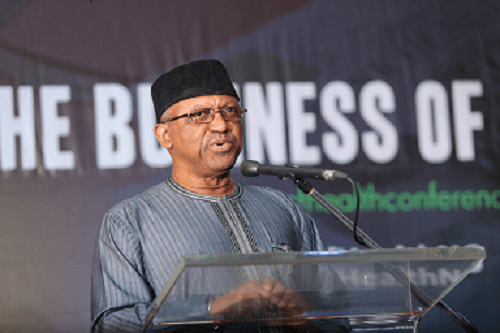The Minister of Health, Dr. Osagie Ehanire, says that the Delta variant of the COVID-19 virus is the dominant strain in the country, requiring Nigerians to keep all the prescribed protective measures in place and increase testing.
Speaking at the Presidential Steering Committee on COVID-19 briefing on Monday in Abuja, the minister said, “The dreaded 3rd wave of COVID-19 may appear to be levelling out because there had been no catastrophic increases in infections and fatalities.
”But, it is not wise to assume that the threat is gone, especially as cases are fluctuating and have to be identified by genomic sequencing.

”Evidence so far, however, is that the Delta strain is already the dominant one in Nigeria. We must keep our protective measures in place and increase testing to determine our situation.
“There are reports of new coronavirus mutations circulating in other countries, a development we shall monitor with all the tools available to us, to ensure we respond appropriately.
”We also remain on alert at Points of Entry, including land and sea borders, to confront importation of COVID-19. Several cases have indeed been identified by rapid diagnostic tests and taken care of accordingly.”
On vaccines, the Minister said that the government had secured nearly 40 million doses of J&J vaccines to be arriving at a rate that NPHCDA would set, to align with their utilization strategy.
According to him, “all states have received doses of AstraZeneca, Moderna and J&J vaccines for the ongoing second phase of the vaccination exercise in all states, while the federal government has done due diligence to ensure vaccine quality and safety.
“Available data shows that there have been no serious adverse effects so far, following vaccinations so that confidence in vaccines we are using is upheld. We have a good mix and quantity of vaccines and do not envisage shortages, despite news reports that vaccines allocated to Africa will be reduced by 25 per cent soon.
”We believe the reduction may be linked to increased demand in high-income countries, many of whom have commenced third booster doses of COVID-19 and or reduced vaccine eligibility age in their countries to 12 years or even less. This tells us that the vaccine is effective and that we should also accept it.
“We shall also surely receive donor doses so that we do not expect to be impacted by the expected shortfall”, the minister said.
(NAN)










